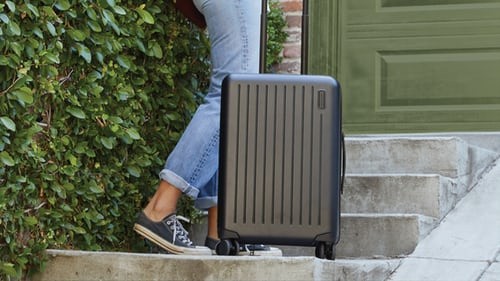
With the popularity of DNA tests helping people find out more about where their family originated, more travelers are planning trips around exploring their ancestry.
Maybe you've been searching for your ancestors for years, or you recently received an inheritance from a relative in another country. Ancestry trips are a great way to feel better connected to your family and learn more about your roots. Here are some travel tips to consider.
Hire a Travel Guide or Go With a Group
As DNA home testing kits become more popular and readily available, there are more travel groups designed specifically around ancestry travel. If you're interested in traveling with a larger group who is also tracing their ancestors in the same country or city, get in touch with your local travel agency or look for groups on social media who are planning ancestry trips.
If you prefer a more private experience, but would still like the benefits of a guided tour, consider hiring a tour guide or someone who specializes in genealogy.
Contact a Genealogy Library or Historical Society
If you're planning to learn more about relatives in another city or state (but you don't know any other relatives who live there), contacting a genealogy or historical society is a good starting point that may give you some great leads on information. Most of these places have public records that you can view and the people who run these places are good at research with very limited information.
Whether you're planning a day trip or a weekend road trip, it's always a good idea to call ahead and see if someone is willing to meet with you when you arrive. Some historians may even start doing a little research for you before you visit.
Make Copies of Any Family Documents You Have
Birth certificates, family photos, and a hand-written family tree are all valuable documents when tracking down your ancestors, but you should never take the original documents with you when you travel. Make copies of important documents and photos and leave the originals in a safe place at home. Even if you're only traveling a state or two away from where you live, you don't want to lose original family photos or other important documents.
Keep in mind that if you want access to family records or other information you may need to show proper documentation or identification, so make sure a copy is fine.
Prepare Yourself for the Unexpected
Other people's success stories of tracking down their ancestors are inspiring, but it's important to remember that everyone's journey is different. During your travels, you might find all the information you want (and more), or it might feel like a bunch of "dead ends."
Tracing your history takes time. With careful planning, you might have great results, but it may also take a few years to get the whole family picture. Don't give up after your first search.
© 2025 NatureWorldNews.com All rights reserved. Do not reproduce without permission.





